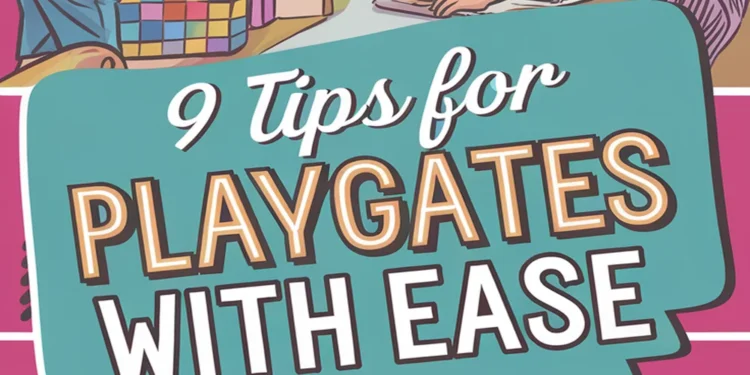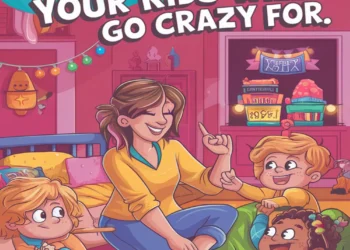Maneuvering playdates can be a breeze when you choose the right partners and set clear expectations. Planning engaging activities keeps kids interested, while preparing for conflicts helps everyone stay calm. Encourage sharing and cooperation to foster friendships. Keep communication open with other parents, and be flexible with time if things don’t go as planned. Following up after the playdate strengthens connections, and there’s so much more you can learn to make these experiences even better.
Choose the Right Playdate Partner
When considering a playdate for your child, it’s important to recognize that not every child will be the perfect fit. Pay attention to your child’s personality and interests. Some kids thrive with energetic friends who love outdoor play, while others prefer calmer, more creative companions. Observe any prior interactions your child has had with potential playdate partners; you’ll notice clues about their compatibility. Don’t hesitate to reach out to other parents, discussing their child’s temperament and play styles can provide valuable insight. Above all, trust your gut feelings. If a particular match doesn’t feel right, explore other options. Your goal is to create an enjoyable and safe environment where both children can thrive and build lasting friendships.
Recommended Items
Explore our favorite picks to make playdates more enjoyable for everyone—let’s dive in!
Set Clear Expectations
Setting clear expectations for a playdate helps guarantee that both children understand what’s involved and can enjoy their time together. Start by discussing your children’s likes and dislikes, so everyone knows what to expect. Share any rules or boundaries that should be followed during the visit, such as sharing toys or taking turns. Consider discussing the schedule—what time the playdate begins, any planned activities, and when it ends. This gives kids a sense of security and promotes smoother interactions. Finally, remind both children to communicate openly if something doesn’t sit well; teaching them to express their needs fosters empathy and understanding. By setting these guidelines, you create a positive environment that encourages friendship and cooperation.
Step-by-Step Guide for Playdates
Plan Engaging Activities
With clear expectations in place, the next step is to plan engaging activities that will capture the children’s interest and keep the fun flowing. Start by considering the age and preferences of the kids involved. Crafts, outdoor games, or a scavenger hunt can provide both structure and excitement. Make sure you have all necessary supplies ready to go, as this minimizes downtime. Mix in a variety of activities to cater to different interests—think about science experiments, storytime, or even a baking session. Remember, flexibility is key; if something isn’t working, switch gears. By creating a lively atmosphere, you’ll encourage collaboration and creativity, making the playdate enjoyable for everyone involved. Happy planning!
Prepare for Conflicts
Although playdates are meant to be fun, conflicts can arise unexpectedly, so being prepared is essential. Here’s how you can handle those situations with grace.
| Conflict Scenario | Approach |
|---|---|
| Sharing Toys | Encourage kids to take turns or use a timer. |
| Disagreements in Games | Suggest a compromise or change the game. |
| Hurt Feelings | Validate feelings and guide them in expressing themselves respectfully. |
Create a Comfortable Environment
After addressing conflicts, it’s important to create a comfortable environment where kids can thrive during playdates. Start by setting up a designated area where they can play freely, ensuring it’s clean, organized, and filled with engaging toys. Encourage a mix of activities, from crafts to games, to keep their interest alive. Be mindful of the noise level; a calm space lets children feel more secure. If you have pets, introduce them slowly to prevent overwhelming any child. Your warm presence can make a big difference, so stay attuned to the kids’ moods and needs, offering guidance when necessary. Ultimately, a cozy, welcoming space helps foster friendships and allows kids to connect in a fun, relaxed way.
Communicate With Other Parents
Effective communication with other parents is essential for ensuring playdates run smoothly and everyone feels comfortable. Start by discussing your expectations regarding the playdate. Share any rules or activities you’d like to include, and ask about theirs. This helps create a mutual understanding and sets a positive tone. Don’t hesitate to exchange contact information and keep lines open for questions, concerns, or updates on how the playdate is going. It’s also helpful to address any dietary requirements or allergies in advance, ensuring the kids are safe and happy. Finally, provide feedback after the playdate. This foster’s a sense of community and helps strengthen relationships with other parents, making future playdates even easier to navigate.
Be Flexible With Time
When planning playdates, it’s important to keep in mind that flexibility with timing can make a significant difference in everyone’s experience. Kids can be unpredictable, and a little wiggle room allows for a smoother and more enjoyable time. Don’t fret if schedules change; embrace it as part of the adventure.
| Emotion | Action | Outcome |
|---|---|---|
| Excitement | Enhance play | Joyful memories |
| Frustration | Adjust plans | Stronger bonds |
| Anxiety | Communicate | Peace of mind |
| Delight | Explore options | Happy children |
Encourage Sharing and Cooperation
Keeping a flexible schedule not only reduces stress but also sets the stage for positive interactions among kids. To encourage sharing and cooperation, start by modeling these behaviors. Show your child how to share toys and take turns. Use phrases like, “Let’s play with that together!” to set an example. You can also create situations that require teamwork, like building a fort or completing a puzzle. If conflicts arise, guide them through problem-solving rather than stepping in immediately. Ask questions like, “How can we make this work for both of you?” Celebrate their successes to reinforce positive behavior. By fostering an environment of cooperation, you’ll help them build essential social skills that will benefit their friendships in the long run.
Follow Up After the Playdate
After a playdate, a thoughtful follow-up can strengthen relationships and reinforce the positive experiences your child had. Reaching out to the other parent shows you value the connection made and fosters future opportunities for play. Here are some practical ways to follow up:
- Share a memorable moment from the playdate that made you smile.
- Thank them for hosting or arranging the playdate.
- Express interest in scheduling another playdate soon.
- Ask for feedback on how your child interacted, which can help you understand their social dynamics.













